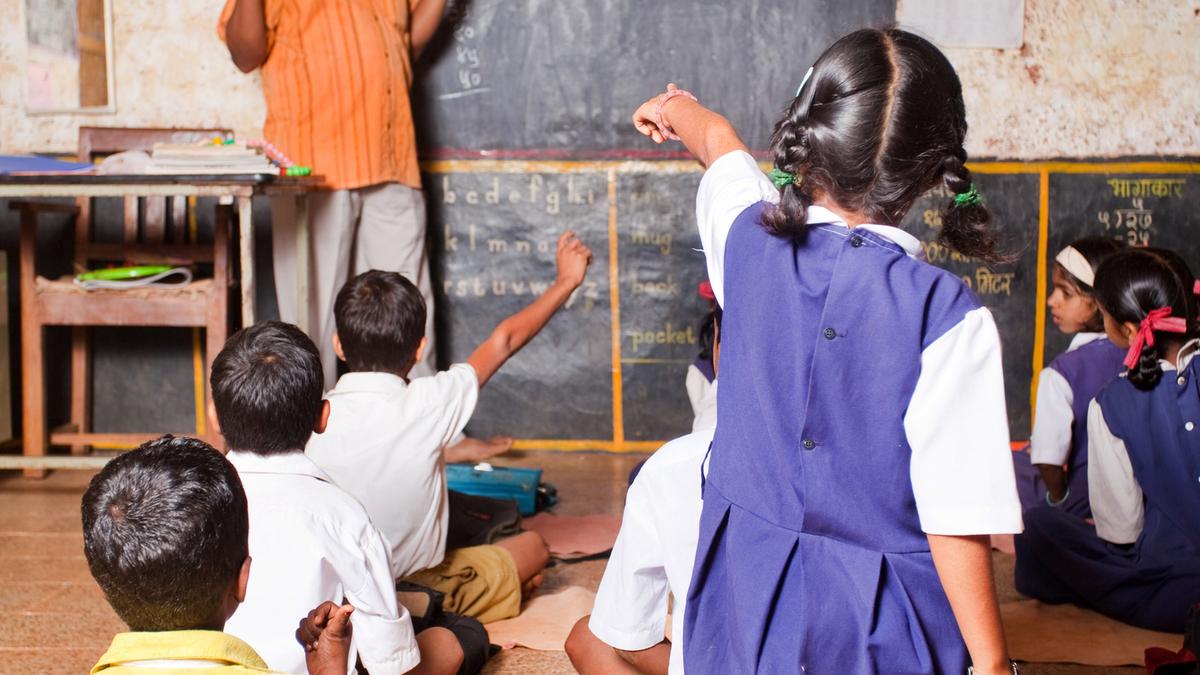Quality teachers are essential for India’s education system, but proposed NCTE regulations may hinder recruitment and deployment.
Teachers are the cornerstone of any robust education system. They are critical to delivering quality education and fulfilling the promise of the Right to Education for every child in India. Almost all of us can recall that one teacher who profoundly shaped our lives. A stronger, more equitable India can only be built on the shoulders of professionally trained, quality teachers.
As the nation with the largest child population in the world, India’s need for well-trained teachers is immense. We cannot hope to meet the Sustainable Development Goal of “Quality Education for All” without addressing this foundational need.
Government data from UDISE suggests that 90% of India’s 9.5 million-strong teaching workforce in schools hold some form of professional qualification. However, ground realities tell a different story.
A 2024 report by the Tata Institute of Social Sciences (TISS), titled “The Right Teacher for Every Child”, dives deeper using both UDISE data and extensive field studies. It reveals that around 46% of primary school teachers hold the DElEd or BElEd qualification. The gaps extend further – over 50% of mathematics teachers hadn’t studied mathematics at the undergraduate level. Physical education and art are also neglected—only 53% of private and 30% of government schools had full-time PE teachers, while full-time art teachers were present in just 40% of private and 19% of government schools.
Teacher shortages remain widespread with 62% of government schools reporting vacancies. The burden is even greater in rural areas, which host 70% of the teaching workforce and face more single-teacher schools, higher pupil-teacher ratios, and greater shortages.
Having served as the Secretary of Department of School Education in Karnataka, I’ve seen these challenges up close, both on demand and supply side. Teacher education institutions, especially private/self-financed DElEd colleges, are often low in quality and affect the supply side issues. Performance in the Teacher Eligibility Test (TET), especially in mathematics, is worrying.
Few students from Science and Mathematics backgrounds enter teacher training. Institutions for physical, art, and special education also remain inadequate. Despite a projected need for over a million new teachers annually, quality supply remains a serious concern.
Against this backdrop, ensuring a steady pipeline of qualified teachers and enabling timely recruitment and rational deployment is critical. Unfortunately, the new draft regulations proposed by the National Council for Teacher Education (NCTE) may complicate rather than ease these challenges.
More harm than good
The NCTE, entrusted with regulating teacher training institutions and setting curriculum and infrastructure norms, plays a vital role in shaping teacher education in India. However, the newly proposed regulations seek to overhaul the current system drastically, with little consideration for the potentially serious repercussions.
Presently, we train generalist teachers for the primary level and subject teachers for middle and high school. The NCTE now proposes training separate teachers for each of four stages: Generalist teacher for Foundational (Grades 1–2); Subject Specialists for Preparatory (Grades 3–5), Middle (Grades 6–8) and Secondary (Grades 9–10).
This change applies across all programmes, including the new four-year Integrated Teacher Education Programme (ITEP), BEd, and specialised education streams such as PE and arts. This hyperspecialised structure fragments teacher education and will have cascading consequences on recruitment and deployment.
States would no longer be able to recruit for a generic “primary teacher” post. Instead, they would need to separately recruit a “foundational teacher” for Grades 1–2 and a “preparatory teacher” for Grades 3–5, with the latter needing to specialise in two subjects. Imagine a small rural school with 30 children, which today needs just two generalist teachers. Under the new system, the school may require four or more specialist teachers just to ensure subject coverage—an unfeasible scenario in most rural contexts.
The implications on supply are equally concerning. Can a 17- or 18-year-old entering a teacher education programme realistically choose whether they want to be a science teacher at the middle or secondary level? Or a PE teacher at the foundational versus preparatory stage? These choices could irreversibly shape their careers. Someone trained as a secondary-level Mathematics teacher, for example, may be legally barred from applying to a middle school post, even if they are qualified and willing.
This over-compartmentalisation raises a fundamental question- is such a rigid framework even necessary? Most high-performing education systems, including China, Singapore, Vietnam, the US, and the UK, train teachers broadly at two levels- primary (generalist) and secondary (subject specialist). Pre-primary is usually a separate track. These systems allow flexibility for teachers to teach across a range of classes, enhancing their competence and confidence.
By contrast, the NCTE’s proposal enforces a narrow, segmented approach that aligns neither with the realities of schools nor with global best practices. The stages defined in the National Education Policy (NEP) are pedagogical, that is meant to reflect developmental continuities, not to become rigid administrative categories. What was meant to encourage integration and flexibility is being turned into a bureaucratic straitjacket.
If implemented, these regulations will add unnecessary complexity to an already strained system. They risk deepening existing inequities in rural and under-resourced areas and may further dilute teacher quality rather than improve it.
A pause is urgently needed. These regulations deserve wider consultation, deeper reflection, and significant revision. The future of our children depends on the quality of their teachers, and that, in turn, depends on the systems we build today.
(G. Kumar Naik is a retired IAS officer and serving Member of Parliament, Lok Sabha. He has served as Secretary, School Education, Government of Karnataka)
Published – April 30, 2025 06:02 pm IST
